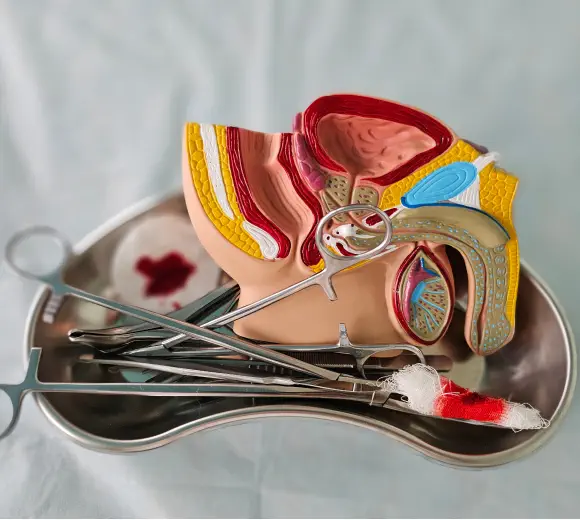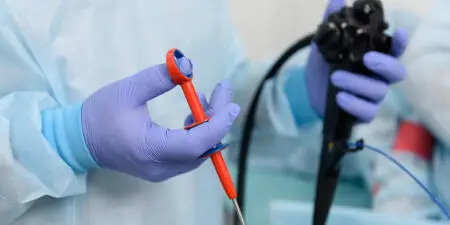Penile Cancer

Penile Cancer: An Overview
The diagnosis and consequential management of penile cancer can be emotionally and physically overwhelming for the affected person. Although this type of cancer is less common, it is crucial to understand that early detection significantly improves the success of the treatment.
For persons suffering from penile cancer, Dr. Aarthy, a renowned urologist doctor, provides expertise in urological surgery, organ-preserving surgical techniques, and personalised treatments can help them address the physical and psychological aspects of recovery.
Consult with Dr. Aarthy at the earliest and enhance your chances of recovery from penile cancer.
Penile Cancer
Causes & Symptoms
- The Causes
- The Symptoms
- Human Papillomavirus (HPV) infection is a common reason.
- Chronic inflammation and irritation of the penis.
- Age is a contributing factor. Penile cancer is common in men above 60 years.
- Smoking and use of tobacco raise the risk because harmful chemicals can damage the DNA of the cells.
- Phimosis- a condition where the foreskin is tight and cannot be easily pulled back.
- Inadequate personal hygiene can cause cellular changes and increase the risk of penile infections.
- Men who have undergone UV light therapy for skin conditions have an increased risk for the disease.
- Physical conditions that suppress immunity and weaken the immune system can make the person vulnerable to penile cancer.
- Changes in thickness and colour of the penis.
- Slow-healing ulcers and sores.
- Bleeding from the penis or below the foreskin.
- Foul odour, particularly from under the foreskin.
- Unusual swelling at the tip of the foreskin or penis.
- Swollen or hardened lymph nodes in the groin region.
- Presence of rash, suspicious lumps, and wart-like growths on the penis.
Comprehensive Diagnosis: Unlocking Clarity About Penile Cancer
Dr. Aarthy relies on specific diagnostic tools and modalities to confirm penile cancer and assess its extent of spread and damage in the body. The tests include:
Penile Cancer Treatment: Available Options

Mohs Surgery
Precise, layer-by-layer removal of the cancer from surface penile tumours to preserve healthy tissues.
Partial Penectomy
Removal of large tumours confined to the tip of the penis while preserving the organ function.
Radical Penectomy
Complete excision of the penis where advanced cancer has affected a significant portion of the organ.
Lymph Node Dissection
Surgical excision of lymph nodes in the groin region. This procedure facilitates staging and further treatment for metastasised cancer.
Radiation Therapy
A primary technique to treat small tumours or as a post-surgical treatment to prevent cancer recurrence.
Chemotherapy
Systemic modality to treat penile cancer that has metastasised to other parts of the body.
Topical Therapy
Topical ointments and medications are applied directly onto superficial penile tumours. This therapy is suitable for early-stage cancers or precancerous conditions.
Laser Therapy
An ideal treatment for very early-stage cancers or pre-cancerous tumours. Laser therapy also helps preserve penile tissues and the organ’s function.
Fight Penile Cancer Today: Take Action Now








